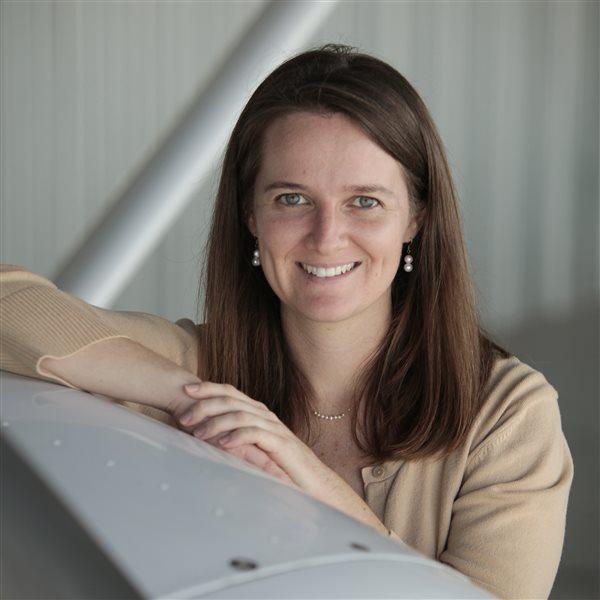$8 a gallon for fuel? No way!
Airport access panel briefs AirVenture attendees on FBO pricing issue
Fixed-base operator fees are an insidious issue that presents a significant risk to general aviation, AOPA President Mark Baker told EAA AirVenture attendees July 25 during a panel discussion about airport access and egregious FBO pricing structures.
A panel of experts joined Baker to discuss the issue from multiple perspectives: AOPA General Counsel Ken Mead, the former Department of Transportation Inspector General; Jeff Hamiel, former head of the Minneapolis-St. Paul Metropolitan Airports Commission and member of AOPA’s Airport Access Advisory Panel; and Sean White, a pilot and vice president and general manager of First Wing Jet Center at Indianapolis Executive Airport.
“You have a situation that’s out of hand, and it’s getting worse,” Mead said.
While most airports and FBOs provide fair and equal access to all pilots, AOPA has found that some airports, especially those that have Signature Flight Support as the sole FBO, charge what the association believes are unreasonably high prices. Signature recently purchased Epic Fuel, the country’s fifth largest aviation fuel distributor, which furthers market control.
Baker said he is worried about the slippery slope the fee issue presents, noting that if one FBO can charge $8 a gallon for fuel, then anyone can charge that.

White said his FBO strives to charge fair prices and excel in customer service because it is the touchpoint for business owners who want to access the Indianapolis area. In addition, 22 of the 46 staff members who work at the FBO are also pilots who use the airport network. White acknowledged that operating costs are on the rise, saying, “You can’t pay a line guy $10 an hour anymore,” and explained that there are other ways for FBOs to maintain a profit without charging exorbitant fees. White said lowering the price of avgas per gallon cuts into the margin, but the increase in traffic coming to buy fuel offsets it.
Orange County Airport in California is a prime example of that, Baker noted. The airport received complaints about the Signature FBO on the field, put out a bid for new operators, replaced Signature, and is now enjoying increased traffic. Avgas and jet fuel sales are up, Baker said.
Hamiel said airport authorities can play an important role in ensuring airport access and reasonable fees, but pilots need to reach out and make them aware of the problem. Hamiel said if pilots meet with airport authorities face to face, the authorities will often be willing to provide transient parking for a nominal fee. They should also be made aware when fuel prices suddenly jump after FBOs on the field have been consolidated.
“I think we can change that by being more vocal, more visible,” Hamiel said.
Airport authorities that receive FAA Airport Improvement Program funding are required to run self-sustaining airports and ensure fair and equitable services. That doesn’t always happen, and that’s where the voice of AOPA members is needed.
“The membership of this organization, though, is key,” Mead said, noting that members have “proven the power of our voice in the past. We’re going to need the power of our voice in this.”
AOPA has filed a series of informal complaints with the FAA, called Part 13 complaints, released an Airport Access Watch List, and worked directly with a number of self-help locations. AOPA believes pilots should be able to land at an airport and access the transportation system from the airport without paying for fees and services they don’t need. One airport that was the subject of an AOPA complaint is already turning around: Waukegan National Airport in Illinois has opened transient ramp access and noted its location on airport diagrams.
The FAA has acknowledged that two other airports that are the subject of AOPA’s complaints—Ashville Regional Airport in North Carolina and Key West International Airport in Florida—have sole FBO providers. However, in response to AOPA’s complaints, the agency said the FBOs have the right to charge any price, even at federally funded airports. In addition, the FAA said there’s no rule requiring the disclosure of fees that are charged.
“How can you have competition when there is no competition?” Mead said.
AOPA has formed an Airport Access Advisory Panel, which includes Hamiel, five FBO owners, and a host of GA pilots, to tackle the issue, and also seeks feedback from members.
“We want to engage the whole community for solutions,” Baker said.
Currently, AOPA is encouraging the FAA to chart transient parking areas on airport diagrams in a uniform manner, and to provide airport access at locations with scheduled traffic that must follow special security procedures from the Transportation Security Administration. In many cases, airport authorities delegate security to the FBO, so the only way pilots can pass through the airport is via the FBO.
In addition to member involvement, the association also is considering legislation and other legal options.
Pilots are encouraged to visit AOPA’s FBO resource page to learn more about the issue and to share their experiences with egregious pricing.




